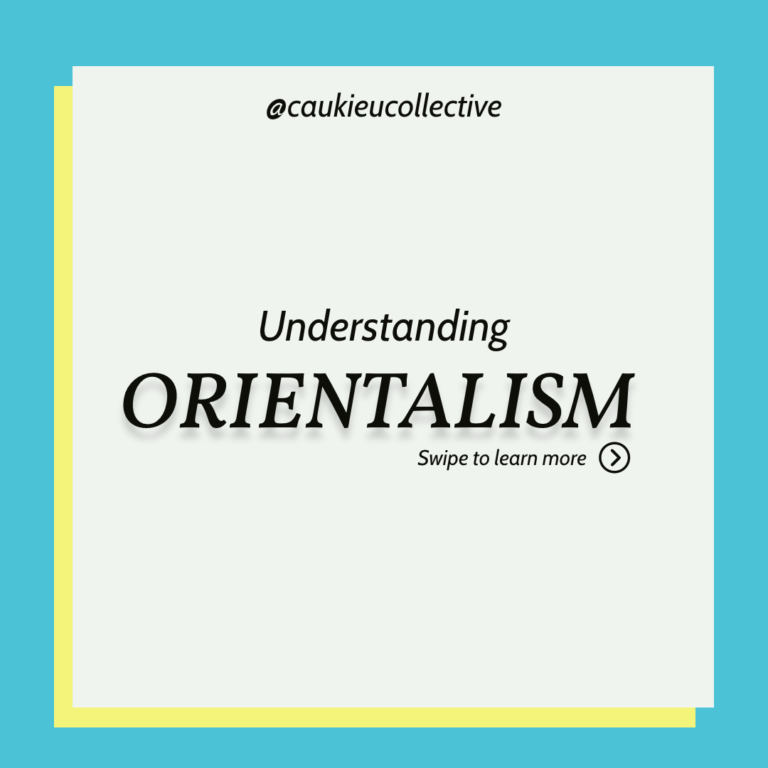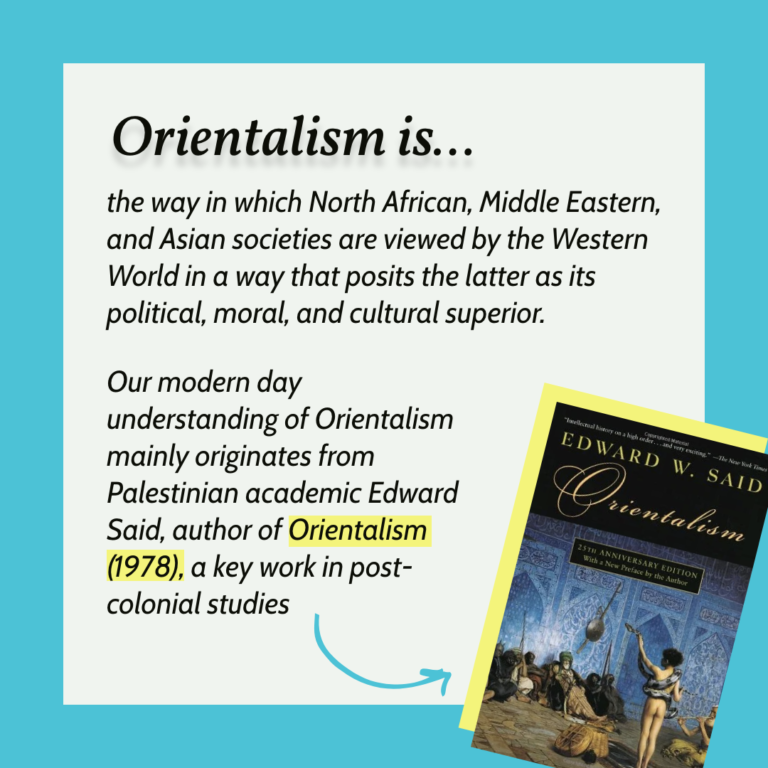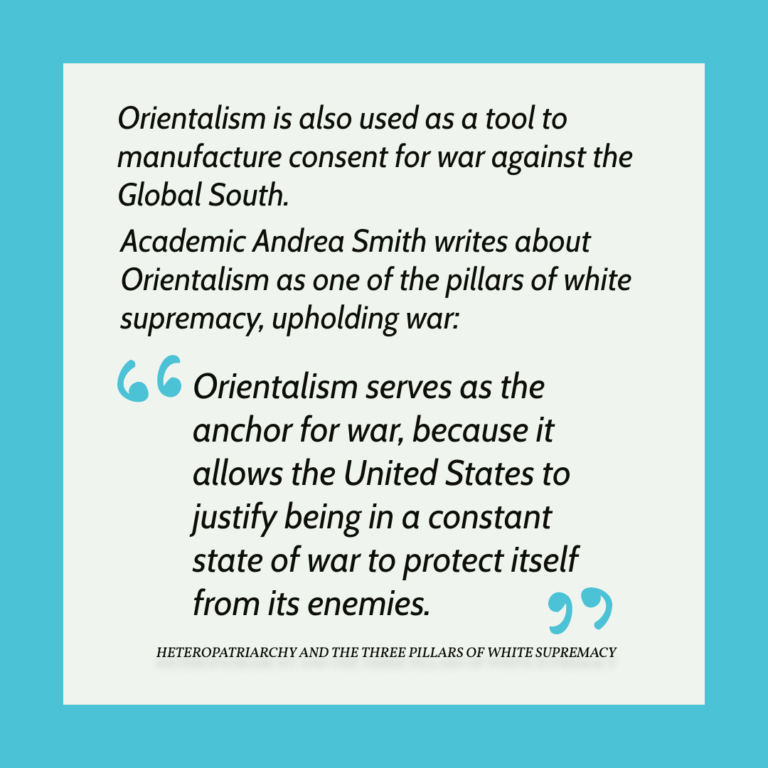Understanding Orientalism
Orientalism is the way in which North African, Middle Eastern, and Asian societies are viewed by the Western World in a way that posits the latter as its political, moral, and cultural superior.
Our modern day understanding of Orientalism mainly originates from Palestinian academic Edward Said, author of Orientalism (1978), a key work in post-colonial studies.
Orientalism has had real material effects on our world; the West using it as a way of “dominating restructuring, and having authority over the Orient*” (Edward Said, Orientalism)
*=while “Orient” historically refers to the peoples and societies of North Africa, Middle East, and Asia, orientalism extends to the Global South as a whole.
By marking certain peoples and nations as “inferior,” orientalism allows the West to label them as foreign enemies that pose a threat to Western hegemony and racial capitalism.
People who hold orientalist views are still capable of admiring and even participating in “Oriental” cultures by eating the food, befriending people who belong to these cultures, or even traveling to their countries.
For example, orientalism is one of the key parts of Western tourism to the Global South; Jamaica Kincaid, an Antiguan author, writes about this phenomenon in A Small Place:
“They are too poor to escape the reality of their lives; and they are too poor to live properly in the place they live, which is the very place you, the tourist, want to go—so when the natives see you, the tourist, they envy you, they envy your ability to leave your own banality and boredom, they envy your ability to turn their own banality and boredom into a source of pleasure for yourself.”
Orientalism is also used as a tool to manufacture consent for war against the Global South.
Academic Andrea Smith writes about Orientalism as one of the pillars of white supremacy, upholding war:
“Orientalism serves as the anchor for war, because it allows the United States to justify being in a constant state of war to protect itself from its enemies.”
Orientalism in the war on terror
While the “War on Terror” officially targeted radical Islamist groups like Al-Qaeda, the racialization and perception of West and South Asian people as foreign enemies was necessary to strengthen and justify American war in Iraq, Afghanistan, Syria, etc.
The countries of West Asia have been subject to bombings, routine civilian killings and brutality, regime change, devastating sanctions, and destruction of their infrastructure due to U.S. military occupation.
Viewing Islam and Arab-majority nations as morally and culturally inferior (e.g. saying Islam is inherently oppressive or they have no freedom or “democracy) puts it in opposition to the “free” Western world, therefore justifying war and intervention.
Even those with no connections to Islam or West Asia were targeted for their perceived status as such, like Sikh Americans and South Asian Americans.
Unlearning Orientalism
Due to Western global hegemony, no one is immune to orientalist thinking. In fact, many racialized people internalize orientalism and western exceptionalism.
It is important to be able to analyse concepts such as Orientalism and its material consequences in how it produces a perpetual “other”. We must make the link between why these tropes exist to justify ongoing economic, political, and military domination of the Asia-Pacific in which our histories are deeply rooted.
Questions to ask yourself when reading Western perspectives on a foreign nation:
- Is this problem unique to this country and these people?
- Do I understand the history of this place and these people well enough to pass judgement?
- What interests does this narrative serve?
Sources
A Small Place by Jamaica Kincaid
Orientalism by Edward Said
Heteropatriarchy and the Three Pillars of White Supremacy by Andrea Smith










